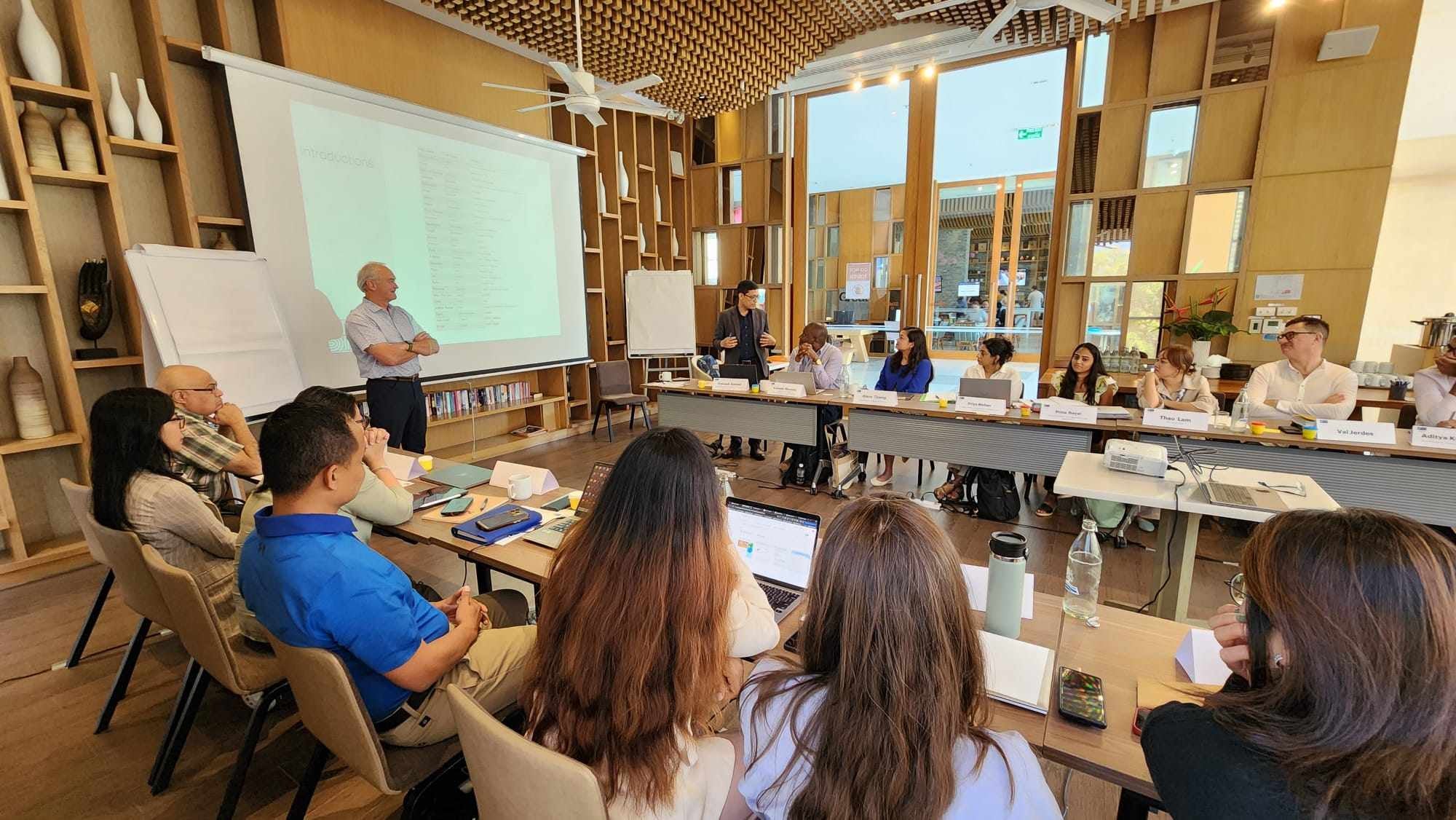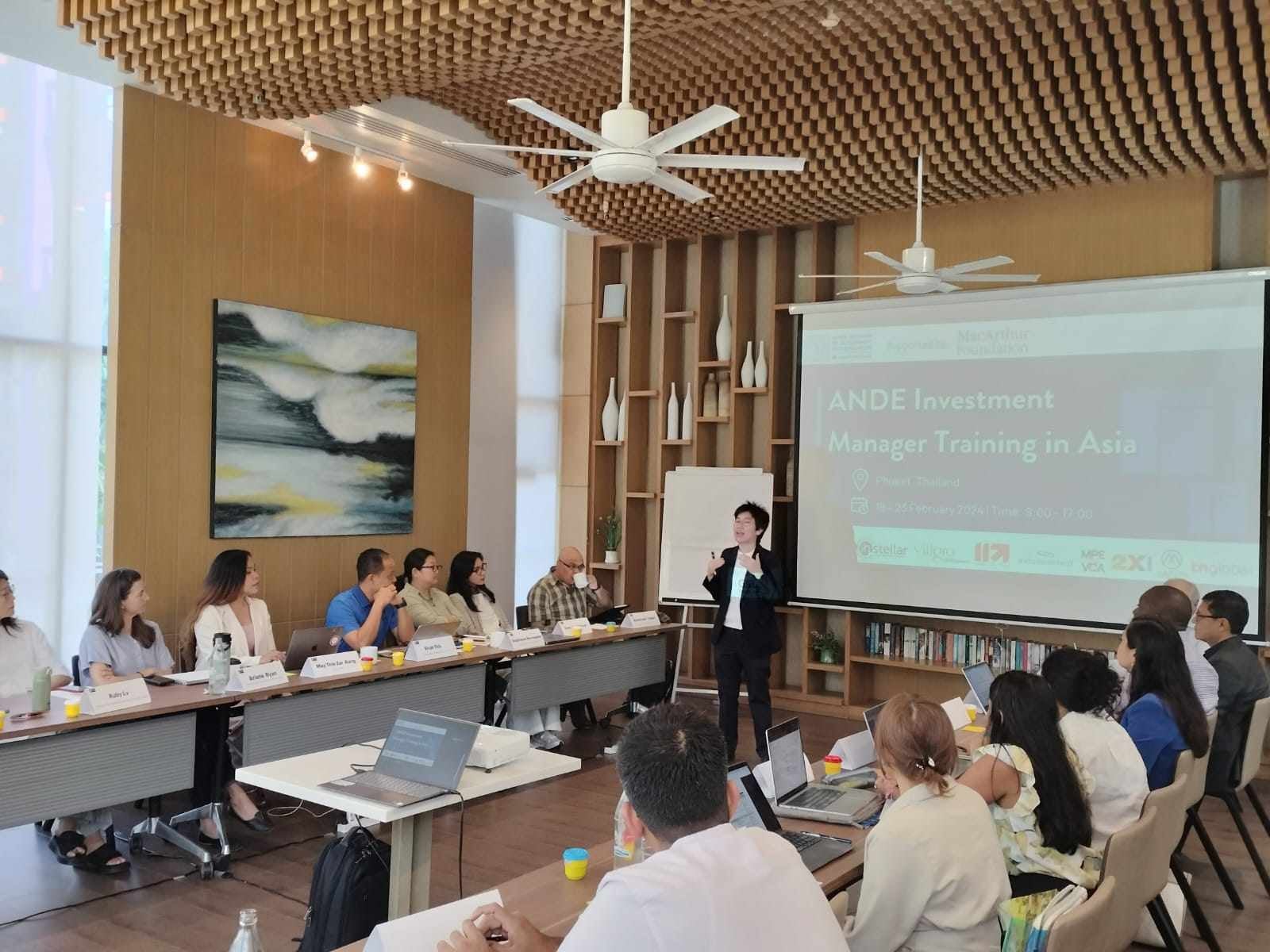Addressing access to finance for small and growing businesses (SGBs) in emerging economies in the Global South is critical. These businesses are essential drivers of economic development, innovation, and job creation—yet they often face significant barriers to securing the capital needed to grow and thrive.
Despite widespread recognition of their role in job creation, poverty reduction, economic diversification, and innovation, many financial institutions still perceive SGBs as too risky or costly to serve. This results in a persistent “missing middle”—enterprises that are too large for microfinance but too small for traditional commercial lending. Bridging this gap is essential to correcting a market failure and unlocking the economic potential of these businesses.
Many SGBs are led by women, youth, and other historically marginalized groups who face even greater challenges in accessing finance. Expanding inclusive financial access is therefore not only an economic priority but also a pathway to greater equity, social inclusion, and community development.
With sufficient financing, SGBs are better positioned to withstand shocks—such as those from pandemics, climate events, or supply chain disruptions—and to invest in long-term adaptation strategies. This resilience is particularly critical in the Global South, where such disruptions are common, and recovery resources are limited.
Improving access to finance for SGBs is not merely a business issue—it is a development imperative. It enables bottom-up economic empowerment, supports more resilient and diversified economies, and advances progress toward the Sustainable Development Goals (SDGs), including decent work, reduced inequalities, and inclusive economic growth.
To help close this persistent finance gap—for impact enterprises, SMEs, and startups—ANDE has consistently worked to convene and support entrepreneurial support organization (ESO) practitioners. Through collaborative action and locally informed strategies, we aim to drive systemic change and enable meaningful progress on the ground.

ANDE’s IMT program equips professionals with the skills to drive inclusive economic growth. This intensive five-day boot camp offers a deep dive into all aspects of investing in small and growing businesses (SGBs). Join a network of experts and gain the tools to navigate the impact investing landscape – from beginner to pro.
Proven effective: Net Promoter Score of 94

Join the KINETIK-ANDE Investment Manager Training from 30 June - 4 July 2025 in Jakarta, Indonesia.
In 2025, the ongoing programs are:
ANDE Asia chapters, in collaboration with Roots of Impact, is pleased to invite you to our Asia Small and Growing Business (SGB) Finance Learning Series where we explore innovative financing approaches for SGBs across Asia.
ANDE Asia chapters, in collaboration with Heifer International, launch the INGO Impact Investing Learning Series to convene a curated group of INGO practitioners to learn, share, and grow together.
Previous programs:
This group seeks to provide a space for comprehensive discussion and knowledge sharing among intermediaries looking to better support SGBs in the area of access to finance. It helps address issues that challenge both ANDE members and the SGBs that they support as they seek to access debt and blended finance capital.
The Thomson Reuters Foundation champions economies that are equitable, participatory, and sustainable, with a focus on environmental respect. Impact investing is crucial for addressing social and environmental inequities but remains underutilized in Southeast Asia. To bridge this gap, the Aspen Network of Development Entrepreneurs (ANDE) partnered with TrustLaw, the TRF's global pro bono service, to enhance understanding of local impact investing regulations in 7 different countries in Southeast Asia: Thailand, Vietnam, Singapore, Indonesia, Malaysia, Myanmar, and the Philippines. Special thanks go to A&O Shearman, DFDL, Mayer Brown, MahWengKwai & Associates, and SyCip Salazar Hernandez & Gatmaitan for their pro-bono support. This guide aims to assist social enterprises, incubators, and investors in navigating local regulations and fostering greater investment in regional startups and their social missions.
"This guide aims to educate social enterprises, incubators, accelerators, capacity developers, and investors on impact investing. It includes relevant laws and potential structures to access impact investing funds and can be used as a resource when entering investment negotiations. This guide unpacks the underlying causes behind less-than-efficient impact investment markets and was written with two goals. First, by setting out basic guidelines, we wish to help those already in the investing space and interested in getting involved in impact investing determine the right approach from the investors' and the social entrepreneurs' perspectives. Secondly, we wish to offer practical advice based on our experience, where we have witnessed critical impact investment discussions. In this paper, we will attempt to bridge the gap between theory and real-world implications, particularly in the Indian context."
This guide is intended as an explanatory memorandum surveying the current legal landscape and market standards in South Africa concerning impact investing as well as the current viable impact investment options. This guide will be useful to, amongst others, South African debt and equity investors, grant-makers, foreign investors, incubator/accelerator portfolio managers, small and medium enterprises and social enterprises. The guide examines the laws and policies governing impact investing in South Africa, as well as different types and sources of financing that can be accessed for impact investment, and introduces a term sheet and “dos and don’ts” in carrying out negotiations and drafting term sheets.
"This introductory guide is aimed at entrepreneurs and investors who are new to the process of negotiating term sheets. It is not meant to provide legal advice; instead, it is designed to provide examples of certain common provisions that are not always easy to grasp.
This guide is a thorough summary of the options for setting up a business in Mexico including the governance clauses and the differences between legal structures. It covers third party investments to raise capitals, and explains the concepts of impact investment, capital instruments and key economic terms."
The Impact Investors Council (IIC) aims to drive private capital towards market-based models for social impact in India. This report, "Year in Retrospect: India Impact Investing Trends," provides insights into 2023's investment landscape across key sectors such as agriculture, climate tech, healthcare, education, financial inclusion, and technology for development. In 2023, equity investments in Indian impact enterprises totaled $2.90 billion, down from $6 billion in 2022, reflecting a global venture capital slowdown rather than India's potential as an impact investment destination. With over 1.4 billion people, there is vast scope for innovative solutions in underserved sectors, especially with rising digital penetration in rural areas. This report highlights the opportunities for scaling impactful solutions that address critical development challenges in India and aims to guide asset owners, managers, and policymakers in understanding and engaging with India's impact investing market.
"This guide is intended as an entry point for grantmaking and investing for social impact, with practical direction on how to apply these principles to your own portfolio. This guide is intended to be used by individual donors who seek to maximize social and financial impact across their portfolios, although this coordinated approach can also be used by organizations seeking to do the same."
"This report reflects a combination of on-the-ground experiences of China Impact Fund (CIF) and New Ventures China (NVC), and points of view from emerging impact investing practitioners active in mainland China. It aims to consider the important but often overlooked role of impact investing in the potential transformation of China's society over the coming decades, especially on the environmental front."
"Impact investing has the potential to enable every foundation, regardless of size, to pursue its philanthropic mission more effectively. It can help individual donors, families, foundations with few or no staff, and all sorts of giving entities put more and different types of capital to work for social good. Even better, it can deliver philanthropic impact alongside financial returns—which can enable reinvestment of those funds in pursuit of even more social good.
We offer this guide with that opportunity in mind—and specifically to support small-staffed foundations seeking to use impact investing to further their missions. It provides a starting point, a review of key questions to consider and ways to answer them, and a variety of tools and connections to additional resources you may need."
"The Middlebury Institute's Center for Social Impact Learning in partnership with SVT Group report offers a shortcut to practical information about how impact investors are tracking and reporting their social and environmental impact today. The report also includes advice from impact investors to those new to the field, and summarizes the history of impact investing, key terms and concepts in impact measurement, and trends, and provides a practical guide to the most relevant publications."
Social Success Notes (SSNs) hold the promise of addressing the missing-middle financing gap for impact SGBs by mobilizing commercial capital into these businesses while overcoming the long-entrenched trade-off between social impact and financial return.
The discussion focused on understanding Masala Bonds as instruments of debt both from an investor's and an entrepreneur's lens.
Social enterprises have a dual mission to achieve impact and financial returns and often find it hard to raise patient capital for growth as they don’t offer the hockey stick projections that investors are looking for. Confronted with this challenge, they may be forced to drift away or abandon their social mission all together, to chase after more lucrative customer segments or product pricing. Impact-linked debt instruments such as Social Success Notes provide an elegant solution.
South Africa's impact investing landscape offers potential for financial returns alongside positive social and environmental change. This guide provides the essential information investors need to succeed.
India consumes one-third of the global standards when it comes to per capita energy consumption. The level of plastic usage is among the lowest and there is a meagre 4% air conditioning penetration in the country. As India moves up the development ladder and aims to be a $10 trillion economy in the next 10 years, there is going to be a great demand for housing, energy, food and transportation. This scenario will hold true for all emerging economies across the world. A scenario that creates a tremendous opportunity for capital to be deployed in these sectors should be good news.
As an ANDE member, you’ll receive dedicated, hands-on support to make the most of your engagement with our global network. ANDE membership includes access to a personal account manager and regular check-in calls to ensure your organization is fully supported and aligned with the opportunities ANDE provides.
